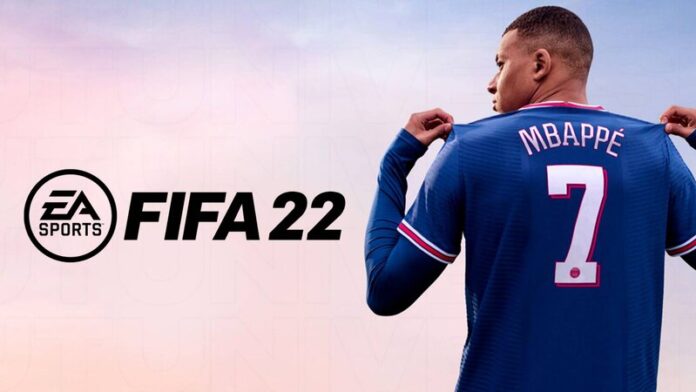For 30 years, EA Sports’ flagship soccer game has gone by the name FIFA. Successive deals between the soccer governing body and EA have ensured that every incarnation of the game has borne the official FIFA branding. However, after this year’s release of FIFA 23, which is due to hit shelves most likely in late September or early October, EA Sports and FIFA will go their own separate ways.
EA Sports have balked at the potential cost to them to retain their FIFA branding and instead, they will continue the series under a new brand name: EA Sports F.C. In response, FIFA has said that it intends to develop its own series of soccer games that will operate under the FIFA banner and which will likely be in direct competition with EA Sports F.C.
This is more than simply two organisations going their separate ways. It is a major split and one that could have significant repercussions not just for EA Sports and the FIFA franchise, but also for the future of soccer-based esports and FIFA betting.
First, though, we need to pick the bones out of what these decisions mean for the FIFA 23 rollout.
What effect does the split between EA and FIFA have on FIFA 23?
Not a great deal to be honest. Most of the work for FIFA 23 was already completed before the announcement was made about EA Sports and FIFA not renewing their partnership. That means developments such as cross-play support, which will allow next-Gen consoles (PS5, Xbox Series X) and Google Stadia players to play together in some game modes, should be included.
As is always the case, EA Sports have not released many details about what will be included, or not be included in FIFA 23, but it seems unlikely that the company will have decided to make massive changes to the game after the agreement with FIFA could not be renewed. It was simply too late, too difficult, and too risky to do that in the time available.
As such, you should find FIFA 23 offers the same quality of release that you have come to expect from each game in the franchise in recent years.
However, that doesn’t mean things won’t change in the future.
What happens post-FIFA 23 with EA Sports F.C and competing FIFA-endorsed games?
This is where things could get interesting and as you would expect, both FIFA and EA Sports have been pretty tight-lipped about what lies in store once the companies’ deal comes to an end.
What we do know is that EA Sports will continue to produce their game under the EA Sports F.C brand name. We also know FIFA is planning several soccer-themed titles, but beyond that, not much is known for certain.
Each group faces its own challenges. EA Sports needed to strike a balance by retaining the popularity of its FIFA series under the new name by retaining all the playability, functionality, and realism that the FIFA series had in spades.
However, they also need to be able to make a clear distinction between EA Sports F.C and the previous FIFA games. This is much more than simply removing FIFA references and sponsorships from the graphics (and also FIFA tournaments such as the World Cup and World Club Championships). It is about setting up a game that will stand on its own terms.
With EA Sports retaining over 30 separate licenses for leagues and competitions across the globe, there will still be the realism and game modes that fans have come to love. Even if EA Sports F.C. won’t be able to call some tournaments by their real names, such as the FIFA World Cup, that won’t really matter.
However, EA Sports FC needs to be significantly different from FIFA, but in a way that retains the facets that players of the original FIFA series love.

A huge challenge facing FIFA
The challenge for FIFA is even greater. They need to build a game from scratch that will challenge one of the most popular gaming franchises of all time. If FIFA is banking on their name being the big selling point of the original series, then they may be in for a rude awakening.
We’ve already seen that games that try to challenge the current version of EA Sports FIFA don’t do well. Konami’s eFootball (derived from its Pro Evolution Soccer game) is still not released, while Football Cup 2022 was described by one reviewer as being “as fluid as granite”.
If companies that have produced games for over three decades are struggling, how will FIFA find a team to create a game to beat what EA Sports F.C can offer?
Similarly, EA Sports has the advantage in licensing too, will customers really want to leave EA Sports F.C to play FIFA’s new offering if their English Top League features a game between Piverlool and Munchester Anited featuring So Malah, Ristiano Conaldo and Madio Sane?
Unfortunately, FIFA’s reaction to EA Sports opting out of the deal seemed to be a knee-jerk reaction of a rejected partner, with actually very little appreciation of how difficult what they were promising was going to be to achieve.
A few years on – the metaverse could change everything
So in the short term, it is going to be a time of change and one of evolution in the soccer gaming industry. History shows that when these splits occur, it tends to be the original game, even under a different name, that thrives and the newcomer that nose dives. Anyone that remembers the Old Championship Manager now new Football Manager v New Championship Manager battle will be all too well aware of who won that battle.
However, what is really exciting in the realm of football gaming is the advent of the metaverse and how this technology could change football gaming forever. Imagine a game where you don’t control the action on the field with a joypad, but by passing, shooting, and moving into position, just as you would in a real game but with your actions controlled by sensors that translate your movement into the game.
Then imagine 21 other players on the field doing likewise for the two teams, set in a huge stadium, where those viewing on the stream can sit in any position in the stadium they like, while managers watch the action unfold from the dugout or in the stands.
Of course, such a game remains a pipedream at the moment, but in the full-immersion metaverse, there is no doubt that there are companies thinking very much along these lines.
And in my opinion, it may well benefit FIFA to try and focus on this, rather than trying to develop a rival to EA Sports FC, which may be the best way forward for the soccer organisation.
www.esportsbets.com







